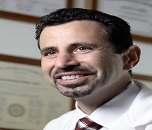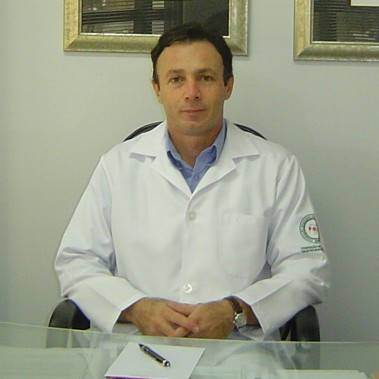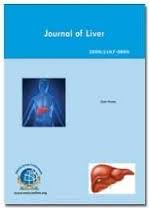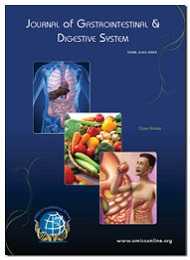Theme: Advancements and breakthroughs in the field of Gastroenterology
Clinical Gastroenterology 2018
14th International Conference on Clinical Gastroenterology and Hepatology is scheduled during August 29-30, 2018 at Toronto, Canada. The scientific program of Clinical Gastroenterology 2018 includes a wide range of Keynote presentations, Plenary talks, Video presentations, Symposia, Workshops, Exhibitions, Poster presentations and e-posters.
Conference Series Organizes 3000+ Global Events Every Year across USA, Europe & Asia with support from 1000 more scientific societies and Publishes 700+ Open access journals which contains over 100000 eminent personalities, reputed scientists as editorial board and organizing committee members. The conference series website will provide you list and details about the conferences organize worldwide.
Why to attend?
This clinical gastroenterology conference will deliver a comprehensive overview of the latest information, insights and practices in gastroenterology, hepatology, endoscopy and more. The agenda aims to provide a forum for all gastroenterologists, internal medicine specialists and hepatologists within the region to exchange ideas, discuss innovative methods and review new developments within the field of gastroenterology. The program addresses the hottest topics as well as new medications on the market and innovative surgical techniques discusses the latest research outcomes and technological advancements in the field and brings together leading gastroenterologists, surgeons, physicians, research scholars, students along with industrial and pharma professionals to exchange share their views on critical aspects of gastroenterology research. This gastroenterology conference brings together Presidents and Eminent Personalities to explore opportunities on emerging platforms in the field of gastrointestinal therapeutics.
Professional Participation
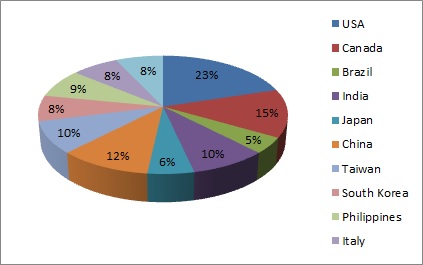
Track: 1 Core Gastroenterology and Hepatology
Gastroenterology is the branch of medicine focused on the digestive system and its disorders. Gastroenterologists perform a number of diagnostic and therapeutic procedures including colonoscopy, endoscopy, endoscopic retrograde cholangiancreatography (ERCP), endoscopic ultrasound and liver biopsy. The Gastroenterology Core Curriculum was first published in 1996. Digestive diseases are conditions that affect the gut, liver and pancreas. Collectively they are a factor in 1 in 8 deaths in the world.
Related Conferences: 3rd International Conference on Hepatobiliary & Pancreatic Disorders September 17-18, 2018, Philadelphia, Pennsylvania, USA. 18th International Conference on Gastroenterology and Endoscopy October 29-30, 2018 San Francisco, California, USA. 3rd International Conference on Internal Medicine and Hospital Medicine October 23-24, 2018 Toronto, Ontario, Canada. American College of Gastroenterology Meeting, October 05-10, Philadelphia, Pennsylvania. Crohn’s & Colitis Congress, June 11-14, Boston, USA. Annual Meeting of the American Gastroenterological Association, June 02-05,Washington, USA. Annual Gastrointestinal Cancers Symposium, Jan 18-20, San Francisco, USA.
Track: 2 Clinical Innovations in Gastroenterology
Innovation is a necessary function in healthcare. Clinical innovation and new technologies are two of the vitally important areas that gastroenterology leverages to provide optimal and cost-effective care to the patients. Innovation may encompass new devices and technologies, new practice patterns, novel methods of patient interaction, and new care delivery paradigms. The evidence threshold for new technologies to be approved continues to rise, and the regulatory and reimbursement pathways, at times, lack transparency and clear innovation. Understanding innovation and changes in clinical practice is a key to keep gastroenterology as a viable specialty. The main aim of the conference is to bridge the gap between innovation and practise in the field of gastroenterology.
Related Conferences: 3rd International Conference on Internal Medicine and Hospital Medicine October 23-24, 2018 Toronto, Ontario, Canada. American College of Gastroenterology Meeting, October 05-10, Philadelphia, Pennsylvania. Crohn’s & Colitis Congress, June 11-14, Boston, USA. Annual Meeting of the American Gastroenterological Association, June 02-05, Washington, USA. Annual Gastrointestinal Cancers Symposium, Jan 18-20, San Francisco, USA. 3rd International Conference on Hepatobiliary & Pancreatic Disorders September 17-18, 2018, Philadelphia, Pennsylvania, USA. 18th International Conference on Gastroenterology and Endoscopy October 29-30, 2018 San Francisco, California, USA.
Track: 3 Inflammatory Bowel Diseases
Inflammatory bowel diseases (IBDs) are chronic inflammatory disorders characterized by chronic relapsing inflammation of the gastrointestinal tract that affect 0.1% of Western populations, comprising two major forms, Crohn's disease (CD) and ulcerative colitis (UC). Adjuvants to the traditional therapy of inflammatory bowel disease (IBD) have been studied to enhance the efficacy of the treatment and improve patients’ quality of life. Approximately 1.6 million Americans currently have IBD, a growth of about 200,000 since the last time CCFA reported in 2011. As many as 70,000 new cases of IBD are diagnosed in the United States each year. There may be as many as 80,000 children in the United States with IBD.
Related Conferences: 3rd International Conference on Internal Medicine and Hospital Medicine October 23-24, 2018 Toronto, Ontario, Canada. American College of Gastroenterology Meeting, October 05-10, Philadelphia, Pennsylvania. Crohn’s & Colitis Congress, June 11-14, Boston, USA. Annual Meeting of the American Gastroenterological Association, June 02-05, Washington, USA. Annual Gastrointestinal Cancers Symposium, Jan 18-20, San Francisco, USA. 3rd International Conference on Hepatobiliary & Pancreatic Disorders September 17-18, 2018, Philadelphia, Pennsylvania, USA. 18th International Conference on Gastroenterology and Endoscopy October 29-30, 2018 San Francisco, California, USA.
Track: 4 Gastrointestinal Surgery
Not all patients seen by an upper gastrointestinal surgeon will necessarily need an operation. A laparoscopic, or minimally invasive surgical procedure, is an alternative to traditional "open" surgery in which a large incision must be made. These small incisions create a passageway for special surgical instruments and a laparoscope. Surgery may be done in patients with continued lower GI bleeding but localization of the bleeding site is very important. If the bleeding site cannot be localized, subtotal colectomy is recommended the digestive system is an intricate system that can be disrupted by disease, diet and emotional stress. While some digestive problems can be remedied with medicine and lifestyle changes, others require surgery.
Gastrointestinal surgery covers two specialties of general surgery (upper gastrointestinal surgery and colorectal surgery. Gastrointestinal ultrasound provides more detailed images of the digestive system than other imaging studies. It allows physicians to examine your esophageal and stomach linings, as well as your upper and lower digestive tract. The surgical treatment of diseases of the gall bladder, liver and pancreas (hepatobiliary system) and oesophagus, stomach and small bowel (upper gastrointestinal tract) is performed under the care of the general surgeon who has a specialist interest in upper gastrointestinal surgery. The conditions treated are many and varied; they often require the assistance of physicians (gastroenterologists) and specialist nurses (cancer care and inflammatory bowel disease).
Related Conferences: 3rd International Conference on Internal Medicine and Hospital Medicine October 23-24, 2018 Toronto, Ontario, Canada. American College of Gastroenterology Meeting, October 05-10, Philadelphia, Pennsylvania. Crohn’s & Colitis Congress, June 11-14, Boston, USA. Annual Meeting of the American Gastroenterological Association, June 02-05, Washington, USA. Annual Gastrointestinal Cancers Symposium, Jan 18-20, San Francisco, USA. 3rd International Conference on Hepatobiliary & Pancreatic Disorders September 17-18, 2018, Philadelphia, Pennsylvania, USA. 18th International Conference on Gastroenterology and Endoscopy October 29-30, 2018 San Francisco, California, USA.
Track: 5 Therapeutic and Diagnostic Gastroenterology
The burden to healthcare and the impact of disease to humans from luminal disorders of the gastrointestinal tract have driven the requirement for more efficient endoscopic visualization and instrumentation over the past decade. The push for greater diagnostic yield has driven advances in optical physics and bioengineering which are revolutionizing diagnostic and therapeutic endoscopy. Nowadays, Cholangioscopy is an established modality in diagnostic and treatment of pancreatic biliary diseases. The more widespread use and the recent development of new technologies and accessories had renewed the interest of endoscopic visualization of the biliary tract, increasing the range of indications and therapeutic procedures, such as diagnostic of indeterminate biliary strictures, lithotripsy of difficult bile duct stones, ablative techniques for intraductal malignancies, removal of foreign bodies and gallbladder drainage. These endoscopic interventions will probably be the last frontier in the near future.
Related Conferences: 3rd International Conference on Internal Medicine and Hospital Medicine October 23-24, 2018 Toronto, Ontario, Canada. American College of Gastroenterology Meeting, October 05-10, Philadelphia, Pennsylvania. Crohn’s & Colitis Congress, June 11-14, Boston, USA. Annual Meeting of the American Gastroenterological Association, June 02-05, Washington, USA. Annual Gastrointestinal Cancers Symposium, Jan 18-20, San Francisco, USA. 3rd International Conference on Hepatobiliary & Pancreatic Disorders September 17-18, 2018, Philadelphia, Pennsylvania, USA. 18th International Conference on Gastroenterology and Endoscopy October 29-30, 2018 San Francisco, California, USA.
Track: 6 Paediatric Gastroenterology, Hepatology and Nutrition
Children are not just small adults. Their bodies are growing and have unique medical needs. They usually express their concerns differently than adults. They cannot always answer medical questions and are not always able to be patient and cooperative. The aim of the study of pediatric gastroenterology is to reduce infant and child rate of deaths, control the spread of infectious disease, promote healthy lifestyles for a long disease-free life and help ease the problems of children and adolescents. It can be acknowledged that this can be reached by learning the major and primary subject on gastroenterology. It includes the treatments involved for the betterment of gastrointestinal health in children.
Related Conferences: 3rd International Conference on Internal Medicine and Hospital Medicine October 23-24, 2018 Toronto, Ontario, Canada. American College of Gastroenterology Meeting, October 05-10, Philadelphia, Pennsylvania. Crohn’s & Colitis Congress, June 11-14, Boston, USA. Annual Meeting of the American Gastroenterological Association, June 02-05, Washington, USA. Annual Gastrointestinal Cancers Symposium, Jan 18-20, San Francisco, USA. 3rd International Conference on Hepatobiliary & Pancreatic Disorders September 17-18, 2018, Philadelphia, Pennsylvania, USA. 18th International Conference on Gastroenterology and Endoscopy October 29-30, 2018 San Francisco, California, USA.
Track: 7 Gastrointestinal cancers and Liver Diseases
Gastric cancer is the second most common gastrointestinal cancer and the fourth most common cancer worldwide. Surgeons are continuing to improve their techniques for operating on colorectal cancers. They now have a better understanding of what makes colorectal surgery more likely to be successful, such as making sure enough lymph nodes are removed during the operation. Laparoscopic surgery is done through several small incisions in the abdomen instead of one large one, and it's becoming more widely used for some colon cancers. This approach usually allows patients to recover faster, with less pain after the operation. Gastroenterology have Laparoscopic surgery is also being studied for treating some rectal cancers, but more research is needed to see if it as effective as standard surgery. With robotic surgery, a surgeon sits at a control panel and operates very precise robotic arms to perform the surgery.
Related Conferences: 3rd International Conference on Internal Medicine and Hospital Medicine October 23-24, 2018 Toronto, Ontario, Canada. American College of Gastroenterology Meeting, October 05-10, Philadelphia, Pennsylvania. Crohn’s & Colitis Congress, June 11-14, Boston, USA. Annual Meeting of the American Gastroenterological Association, June 02-05, Washington, USA. Annual Gastrointestinal Cancers Symposium, Jan 18-20, San Francisco, USA. 3rd International Conference on Hepatobiliary & Pancreatic Disorders September 17-18, 2018, Philadelphia, Pennsylvania, USA. 18th International Conference on Gastroenterology and Endoscopy October 29-30, 2018 San Francisco, California, USA.
Track: 8 Gastrointestinal Immunology
The gastrointestinal tract (GI tract) plays dual roles in human physiology: digestion and uptake of nutrients and the more daunting task of maintaining immune homeostasis (protecting the body from potentially harmful microbes, while inducing tolerogenic responses to innocuous food, commensals and self-antigens). The unique architecture of the GI tract and viral hepatitis facilitates both of these functions; multiple levels of infolding results in an immense overall surface area that allows maximal nutrient absorption while housing the largest number of immune cells in the body. As many pathogens enter the body via the intestinal mucosa, it is vital the gut-associated lymphoid tissues can provide effective immune responses when necessary.
Related Conferences: 3rd International Conference on Internal Medicine and Hospital Medicine October 23-24, 2018 Toronto, Ontario, Canada. American College of Gastroenterology Meeting, October 05-10, Philadelphia, Pennsylvania. Crohn’s & Colitis Congress, June 11-14, Boston, USA. Annual Meeting of the American Gastroenterological Association, June 02-05, Washington, USA. Annual Gastrointestinal Cancers Symposium, Jan 18-20, San Francisco, USA. 3rd International Conference on Hepatobiliary & Pancreatic Disorders September 17-18, 2018, Philadelphia, Pennsylvania, USA. 18th International Conference on Gastroenterology and Endoscopy October 29-30, 2018 San Francisco, California, USA.
Track: 9 GI Bleeding and Pathology
GI bleeding can originate anywhere from the mouth to the anus and can be overt or occult. The manifestations depend on the location and rate of bleeding. Acute or chronic bleeding of internal haemorrhoids stops spontaneously in most cases. Patients with refractory bleeding are treated via anoscopy with rubber band ligation, injection, coagulation, or surgery. Massive GI bleeding is tolerated poorly by elderly patients. Diagnosis must be made quickly, and treatment must be started sooner than in younger patients, who can better tolerate repeated episodes of bleeding. Rectal bleeding may result from upper or lower GI bleeding. Orthostatic changes in vital signs are unreliable markers for serious bleeding. About 80% of patients stop bleeding spontaneously; various endoscopic techniques are usually the first choice for the remainder.
Related Conferences: 3rd International Conference on Internal Medicine and Hospital Medicine October 23-24, 2018 Toronto, Ontario, Canada. American College of Gastroenterology Meeting, October 05-10, Philadelphia, Pennsylvania. Crohn’s & Colitis Congress, June 11-14, Boston, USA. Annual Meeting of the American Gastroenterological Association, June 02-05, Washington, USA. Annual Gastrointestinal Cancers Symposium, Jan 18-20, San Francisco, USA. 3rd International Conference on Hepatobiliary & Pancreatic Disorders September 17-18, 2018, Philadelphia, Pennsylvania, USA. 18th International Conference on Gastroenterology and Endoscopy October 29-30, 2018 San Francisco, California, USA.
Track: 10 Pancreatic and Biliary Diseases
Hepatobiliary cancers refer to liver cancer and cancers of the biliary tract that arise in the bile ducts, the tubes that carry bile from the liver or gallbladder to the small gut. Biliary tract cancers, also referred to as cholangiocarcinomas, refer to those malignancies occurring in the organs of the biliary machine, inclusive of pancreatic most cancers, gallbladder cancer, and cancer of bile ducts. The occurrence of most cancers of the pancreas increases with age. Risk will increase after age 30 years, with most instances occurring among the ages of 65 and 79. But the disease has also been suggested in younger individuals, which include children. A variation in prevalence and mortality among distinct non secular agencies has additionally been found. The purpose of pancreatic carcinoma remains unsure; however numerous elements have been implicated. Cigarette smoking has been related to an increased hazard of pancreatic carcinoma.
Related Conferences: 3rd International Conference on Internal Medicine and Hospital Medicine October 23-24, 2018 Toronto, Ontario, Canada. American College of Gastroenterology Meeting, October 05-10, Philadelphia, Pennsylvania. Crohn’s & Colitis Congress, June 11-14, Boston, USA. Annual Meeting of the American Gastroenterological Association, June 02-05, Washington, USA. Annual Gastrointestinal Cancers Symposium, Jan 18-20, San Francisco, USA. 3rd International Conference on Hepatobiliary & Pancreatic Disorders September 17-18, 2018, Philadelphia, Pennsylvania, USA. 18th International Conference on Gastroenterology and Endoscopy October 29-30, 2018 San Francisco, California, USA.
Track: 11 Gastrointestinal Diseases during Pregnancy and Lactation
Gastrointestinal disorders represent some of the most frequent complaints during pregnancy. Some women have GI disorders that are unique to pregnancy. Other pregnant patients present with chronic GI disorders that require special consideration during pregnancy. Febrile illness along with acute intestinal infections may in some cases cause miscarriage or premature labour. Certain infections have been reported to have caused miscarriage; however, there is no concrete evidence of common gastrointestinal disorders to cause miscarriage or premature labour. If the infection progresses to a critical stage, the foetus is at high risk from both the infection and also the subsequent treatment and antibiotics. Listeriosis is one such infection that can directly harm the foetus, as the organism can directly cross the placenta due to its intracellular lifecycle and is fatal to the neonate. Although salmonella spp. can cause neonatal infection in the new-borns, it is not fatal.
Related Conferences: 3rd International Conference on Internal Medicine and Hospital Medicine October 23-24, 2018 Toronto, Ontario, Canada. American College of Gastroenterology Meeting, October 05-10, Philadelphia, Pennsylvania. Crohn’s & Colitis Congress, June 11-14, Boston, USA. Annual Meeting of the American Gastroenterological Association, June 02-05, Washington, USA. Annual Gastrointestinal Cancers Symposium, Jan 18-20, San Francisco, USA. 3rd International Conference on Hepatobiliary & Pancreatic Disorders September 17-18, 2018, Philadelphia, Pennsylvania, USA. 18th International Conference on Gastroenterology and Endoscopy October 29-30, 2018 San Francisco, California, USA.
Track: 12 Endoscopy
Endoscopes are minimally invasive and can be inserted into the openings of the body such as the mouth or anus. Because modern endoscopy has relatively few risks, delivers detailed images, and is quick to carry out, it has proven incredibly useful in many areas of medicine. Today, tens of millions of endoscopies are carried out each year. Sometimes, endoscopy will be combined with another procedure such as an ultrasound scan. Endoscopy can be used to place the ultrasound probe close to organs that can be difficult to image, such as the pancreas. Endoscopy has advanced in recent years, enabling some forms of surgery to be conducted using a modified endoscope; this makes the surgery less invasive. Current endoscopes are derived from a primitive system created in 1806-a tiny tube with a mirror and a wax candle. Although crude, this early instrument allowed a first view into a living body.
Related Conferences: 3rd International Conference on Internal Medicine and Hospital Medicine October 23-24, 2018 Toronto, Ontario, Canada. American College of Gastroenterology Meeting, October 05-10, Philadelphia, Pennsylvania. Crohn’s & Colitis Congress, June 11-14, Boston, USA. Annual Meeting of the American Gastroenterological Association, June 02-05, Washington, USA. Annual Gastrointestinal Cancers Symposium, Jan 18-20, San Francisco, USA. 3rd International Conference on Hepatobiliary & Pancreatic Disorders September 17-18, 2018, Philadelphia, Pennsylvania, USA. 18th International Conference on Gastroenterology and Endoscopy October 29-30, 2018 San Francisco, California, USA.
Track: 13 Neurogastroenterology and Motility
Neurogastroenterology is a subspecialty of gastroenterology that overlaps with neurology Neurogastroenterology encompasses the examine of the mind, the intestine, and their interactions with relevance to the understanding and control of gastrointestinal motility and functional gastrointestinal problems. Motility issues are the second classification of gastrointestinal disorder studied through neurogastroenterologists. Motility disorders are divided via what they affect, with 4 areas: The esophagus, the stomach, the small intestines, and the large intestines. Clinical studies in neurogastroenterology focuses particularly on the study of common motility disorders consisting of gastroesophageal reflux ailment, the damage of the mucosa of the esophagus caused by rising stomach acid through the lower esophageal sphincter.
Related Conferences: 3rd International Conference on Internal Medicine and Hospital Medicine October 23-24, 2018 Toronto, Ontario, Canada. American College of Gastroenterology Meeting, October 05-10, Philadelphia, Pennsylvania. Crohn’s & Colitis Congress, June 11-14, Boston, USA. Annual Meeting of the American Gastroenterological Association, June 02-05, Washington, USA. Annual Gastrointestinal Cancers Symposium, Jan 18-20, San Francisco, USA. 3rd International Conference on Hepatobiliary & Pancreatic Disorders September 17-18, 2018, Philadelphia, Pennsylvania, USA. 18th International Conference on Gastroenterology and Endoscopy October 29-30, 2018 San Francisco, California, USA.
Track: 14 Tracking trends in Gastroenterology
Gastrointestinal and liver disease represents a significant global health problem, and cause approximately 8 million deaths per year worldwide. In developed countries, GI malignancies are among the leading causes of death. In developing countries, diarrheal diseases and viral liver infections are highly prevalent and are responsible for significant mortality. These and other diseases are tracked by international and regional health organizations. These tracking measures allow for some assessment of the global burden of GI diseases and may allow identification of important temporal trends.
Related Conferences: 3rd International Conference on Internal Medicine and Hospital Medicine October 23-24, 2018 Toronto, Ontario, Canada. American College of Gastroenterology Meeting, October 05-10, Philadelphia, Pennsylvania. Crohn’s & Colitis Congress, June 11-14, Boston, USA. Annual Meeting of the American Gastroenterological Association, June 02-05, Washington, USA. Annual Gastrointestinal Cancers Symposium, Jan 18-20, San Francisco, USA. 3rd International Conference on Hepatobiliary & Pancreatic Disorders September 17-18, 2018, Philadelphia, Pennsylvania, USA. 18th International Conference on Gastroenterology and Endoscopy October 29-30, 2018 San Francisco, California, USA.
Track: 15 Advancements in Hepatology
Although the future of hepatology promises to eradicate Hepatitis C virus infection, a new challenge has taken its place. Obesity and metabolic syndrome and associated non-alcoholic fatty liver diseases are replacing hepatitis C virus as the most common cause of chronic liver diseases in Western countries.
Great progress in molecular biology, therapeutics, imaging and surgery has vastly improved the understanding and treatment of childhood liver disorders. In particular surgical advancements in liver transplantation currently allow for a lower age or weight limit for recipients. Furthermore the majority of children with liver diseases or with liver transplantation today survive well into adulthood.
Related Conferences: 3rd International Conference on Internal Medicine and Hospital Medicine October 23-24, 2018 Toronto, Ontario, Canada. American College of Gastroenterology Meeting, October 05-10, Philadelphia, Pennsylvania. Crohn’s & Colitis Congress, June 11-14, Boston, USA. Annual Meeting of the American Gastroenterological Association, June 02-05, Washington, USA. Annual Gastrointestinal Cancers Symposium, Jan 18-20, San Francisco, USA. 3rd International Conference on Hepatobiliary & Pancreatic Disorders September 17-18, 2018, Philadelphia, Pennsylvania, USA. 18th International Conference on Gastroenterology and Endoscopy October 29-30, 2018 San Francisco, California, USA.
As per the research report, the global gastrointestinal drugs market is anticipated to be worth US$61.1 billion by 2024 and the global market for gastrointestinal medical devices will reach $18.2 billion in 2018 with nearly 25% of that consumed within gastrointestinal endoscopic devices worldwide by 2020. In addition to outstanding clinical care, GI research is also a priority and scientists currently receive more than $5 million annually in external funding to perform gastrointestinal research.
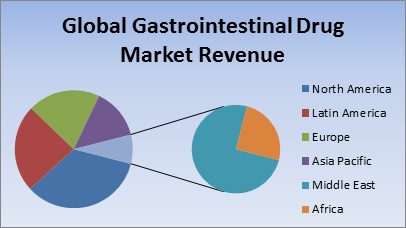
North America held 41% of the market in 2016. Europe has also been witnessing healthy growth and is anticipated to continue being an attractive region for gastrointestinal drugs market. Gastrointestinal drugs market to hit $48.4 billion by 2022 as biologic products revolutionize the treatment space.
This report covers all gastrointestinal disorders, but there is a particular focus on three key diseases: gastroesophageal reflux disease, irritable bowel syndrome and inflammatory bowel disease. The global gastrointestinal market was valued at $35.7 billion in 2015 and is projected to grow at a compound annual growth rate (CAGR) of 4.45%, reaching $48.4 billion in 2022. Proton pump inhibitors (PPIs) and tumour necrosis factor (TNF)-α inhibitors generate the largest revenues and continue to retain commercial prominence.
Market Growth in Canada
Fast-paced modern lifestyles, which increase the stress levels of working consumers, in particular, support the growth in sales of digestive remedies in Canada. According to the Canadian Digestive Health Foundation, digestive disorders affect more than 20 million Canadians each year.The growing rate of obesity in Canada also increases the risk of many digestive disorders, such as gastroesophageal reflux disease (GERD) and stomach ulcers. However, while obesity could lead to more consumers becoming frequent users of digestive remedies, weight loss and healthier diets may reduce the risk of some digestive problems or prevent them from progressing.
According to the report, the North America region is expected to hold the largest share in the global gastrointestinal diseases market. This dominance of North America is attributed to the rising approval of the novel drugs and the growth in the instances of various gastrointestinal diseases.While recent pharmaceutical industry trends in Canada have been challenged with poor market growth and pressures from global competition, there still remains a very viable industry which if aided by stronger industrial sector support can flourish and successfully compete in this new and much more globally competitive business environment. Canada also has an opportunity to be a global leader in certain new growth areas.
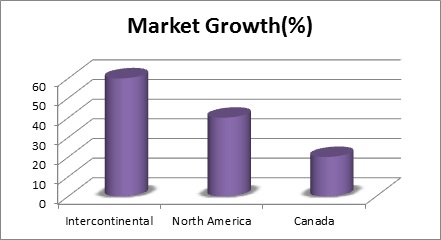
We would like to thank all of our eminent speakers, conference attendees, students, associations and guests for making Gastroenterology 2017 a successful event!
Conference Series hosted 13th International Conference on Clinical Gastroenterology, Hepatology and Endoscopy scheduled during November 13-14, 2017 at Las Vegas, USA with the theme “Knowing the unknown and finer facets of Gastroenterology"
The conference had multiple sessions, Keynote presentations, panel discussions and Poster sessions. We received active participation from various scientists, researchers, students and leaders from the field of Gastroenterology who made this event successful.
Various sessions were carried out with multiple presentations from speakers all around the world. Major Sessions to be discussed were:
- Core Gastroenterology
- Gastrointestinal Cancers and Liver Diseases
- Gastrointestinal Surgery
- Inflammatory Bowel Diseases
- Endoscopy
- GI Micobiome
- Pancreatic and Biliary cancers
- Gastrointestinal Immunology
- Vitamins, Nutrition and Gastroenterology
The conference was initiated with a series of lectures delivered by both Honorable Guests and members of the Keynote forum. The list includes:
- Manuel Perucho, Institut de Recerca Germans Trias i Pujol, Spain
- Milan Lukas, Charles University, Czech Republic
- Bingrong Liu, Zhengzhou University, China
Conference series thank all our expert presenters from all around the world which includes various outside experts, University representatives and other eminent researchers who supported the conference by facilitating the discussion forums.
With the grand success of Gastroenterology 2017, Conference Series take the immense pleasure to announce the “14th International Conference on Clinical Gastroenterology and Hepatology" to be held during August 29-30, 2018 in Toronto, Canada.
Let us meet again @ Clinical Gastroenterology 2018
- Will be felicitated with International Organizing Committee Member (IOCM) Certificate
- Access to all Scientific Sessions (Keynotes, Plenary, Workshops, Symposiums, Poster Presentations)
- Full Conference Kit with Conference Souvenir and Final Program (e-copies)
- Abstracts will be published in the conference souvenir and respective International journals
- Each Abstract will receive unique (DOI) Number provided by Cross Ref
- Laudable talks by the top-notch of the global scientific community
- Website visibility to more than 35K visitors in less than 6 months
- Keynote sessions by world’s most eminent researchers
- One on One Meeting with Eminent Speakers
- Top Industries Representation
- Thought provoking Symposiums and Workshops
- Preconference Workshops in all major countries
- Remarkable Awards and Global Recognition to meritorious Researchers
- Nominations for Best Poster Award
- Outstanding Young Researcher Award geared towards best budding young research.
- Group Registration benefits
- Advance Research oriented presentations
- Collaborations across Academia & Industry
- Triumph of Awards, Certificates recognizes your commitment to your profession to encourage the nascent research.
- A wide track of Exhibitors to showcase the new and emerging technologies.
- Platform to Global investment community to connect with stakeholders
- Exquisite Platform for showcasing your products and International Sponsorship
- Best platform to develop new partnership & collaborations.
- Best location to speed up your route into every territory in the World.
- 89% our conference attendees are the Key contact in their universities, companies, organizations, hospitals, medical centers, labs purchasing decisions.
- Our exhibitor booths were visited 4-5 times by 80% of the attendees during the conference.
- Past exhibitor’s feedback reveals ample of enquiries perceived from the conference attendees.
Conference Highlights
- Core Gastroenterology and Hepatology
- Clinical Innovations in Gastroenterology
- Inflammatory Bowel Diseases
- Gastrointestinal Surgery
- Therapeutic and Diagnostic Gastroenterology
- Pediatric Gastroenterology, Hepatology and Nutrition
- Gastrointestinal cancers and Liver Diseases
- Gastrointestinal Immunology
- GI Bleeding and Pathology
- Pancreatic and Biliary Diseases
- Gastrointestinal Diseases during Pregnancy and Lactation
- Endoscopy
- Neurogastroenterology and Motility
- Tracking trends in Gastroenterology
- Advancements in Hepatology
To share your views and research, please click here to register for the Conference.
To Collaborate Scientific Professionals around the World
| Conference Date | August 29-30, 2018 | ||
| Sponsors & Exhibitors |
|
||
| Speaker Opportunity Closed | |||
| Poster Opportunity Closed | Click Here to View | ||
Useful Links
Special Issues
All accepted abstracts will be published in respective Our International Journals.
- Journal of Gastrointestinal & Digestive System
- Journal of Inflammatory Bowel Diseases & Disorders
- Journal of Liver
Abstracts will be provided with Digital Object Identifier by




